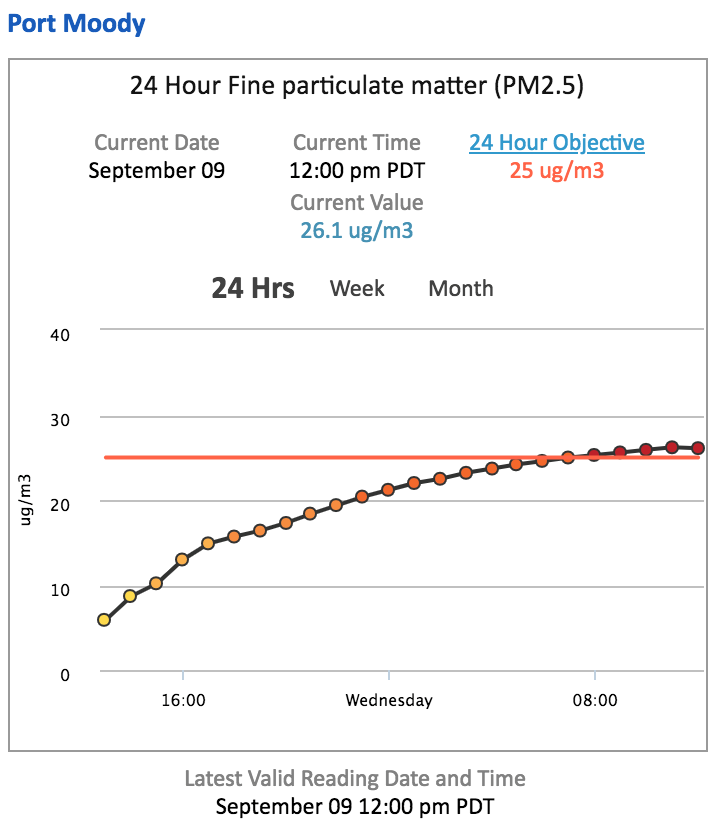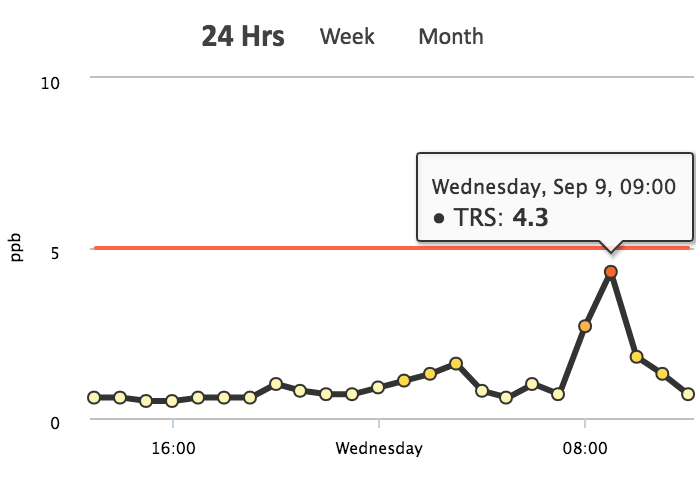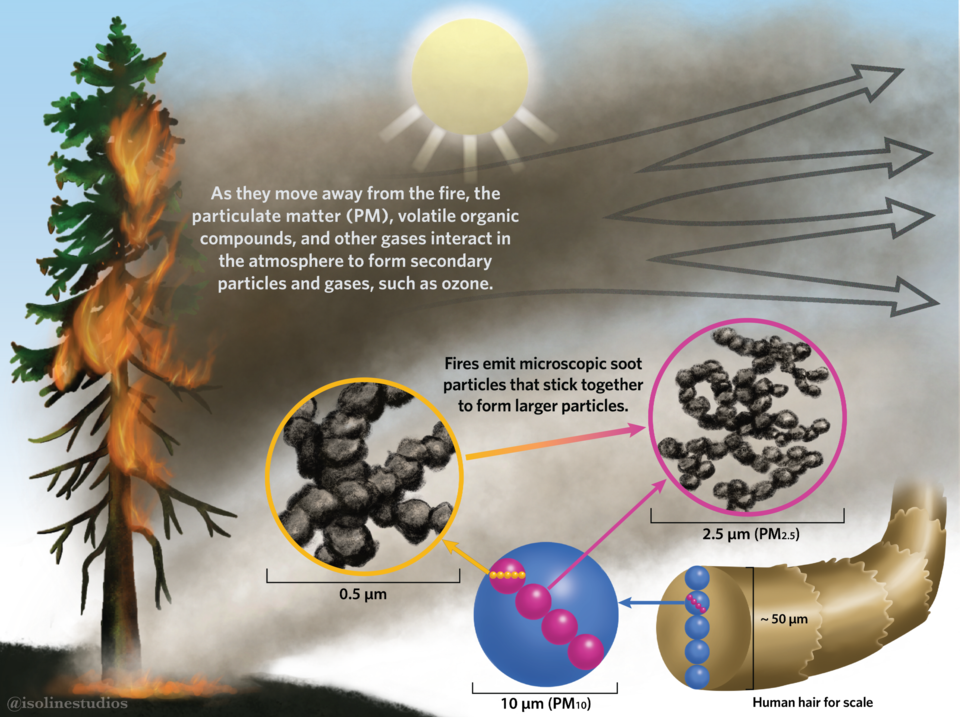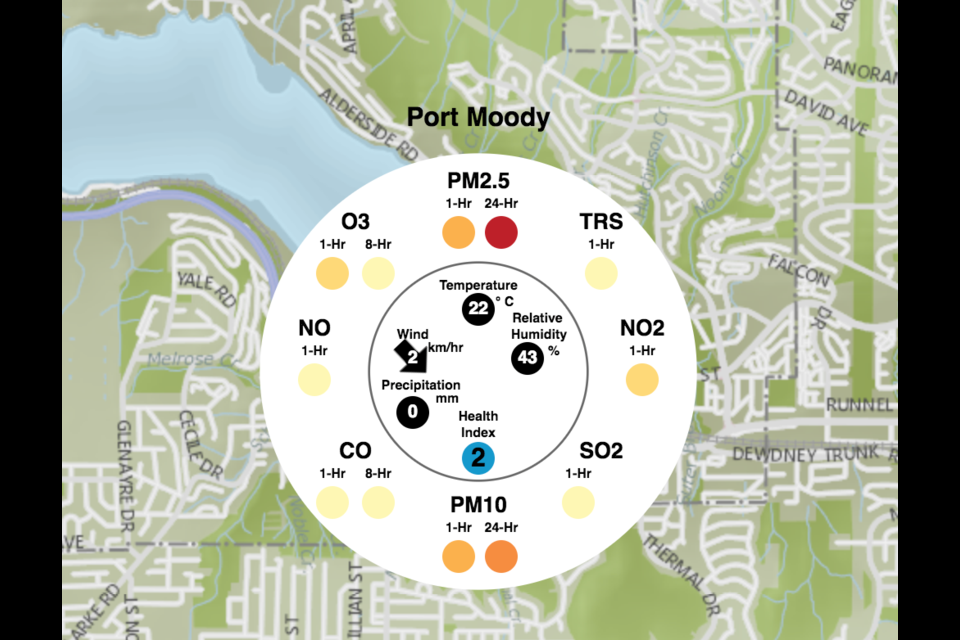An air quality warning continues to remain in effect as fine particulate matter and ground-level ozone blanket Metro Vancouver and the Fraser Valley.
The source of the pollutants stem from smoke drifting north from ongoing wildfires in Washington and Oregon, according to a Metro Vancouver advisory. Temperatures 5 to 10 degrees Celsius higher than the seasonal average have combined with the smoke to elevate ground-level ozone concentrations as well.
The latest air quality reading from the Port Moody station shows 24-hour cumulative concentrations of fine particulates (2.5 micrometers in size) reaching beyond “high” into the “exceeding objective” category of pollution — the highest level of pollutants on a six-point scale.
Concentrations of fine particulate matter peaked at roughly 9 a.m. Wednesday and remain elevated.


Health effects from wildfire smoke can range from a sore throat, itchy eyes and a runny nose to a mild cough, wheezy breathing and even headaches, notes the BCCDC.
Wildfire smoke is a complex mixture of gases and particles, with fine particulate matter larger than 2.5 micrometers passing the greatest health risk to humans, particularly those with chronic conditions, like asthma, heart disease, diabetes or chronic obstructive pulmonary disease, known as COPD.
Pregnant women, infants and young children, as well as the elderly are also at a higher risk of experiencing health problems from wildfire smoke.
“Some people may experience more severe symptoms and should seek prompt medical attention,” said the organization, adding you should call 811 or speak to a doctor if you experience shortness of breath, a severe cough, dizziness, chest pain or heart palpitations.

Short of those severe symptoms, there are several things you can do to protect yourself from wildfire smoke. Indoors, a portable HEPA air cleaner can filter out the contaminated air in a section of your house, offering a safe haven for you or your family.
If you don’t have access to your own HEPA filter, you might consider visiting a shopping mall or one of the community centres and libraries recently reopened across the Tri-Cities.
No matter where you are, it’s important to avoid strenuous activities on smokey days, advises the BCCDC through its website.
For those forced to work outdoors, using an N95 mask — though not always an easy thing to find these days — is recommended.
Conditions are expected to persist until at least Thursday, Sept. 10



